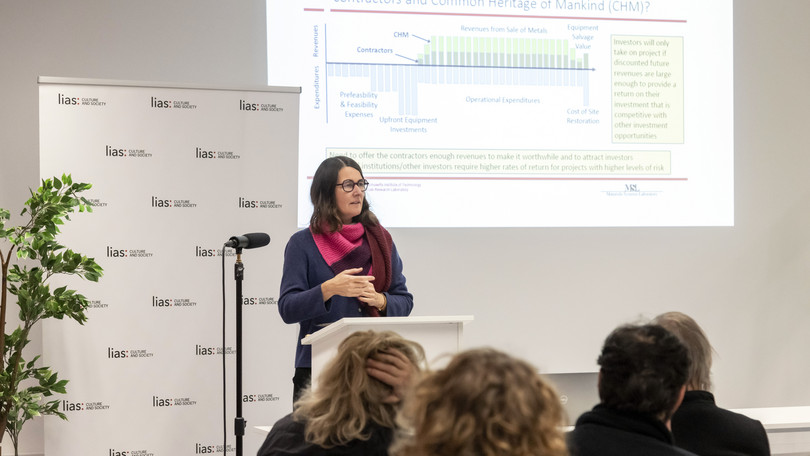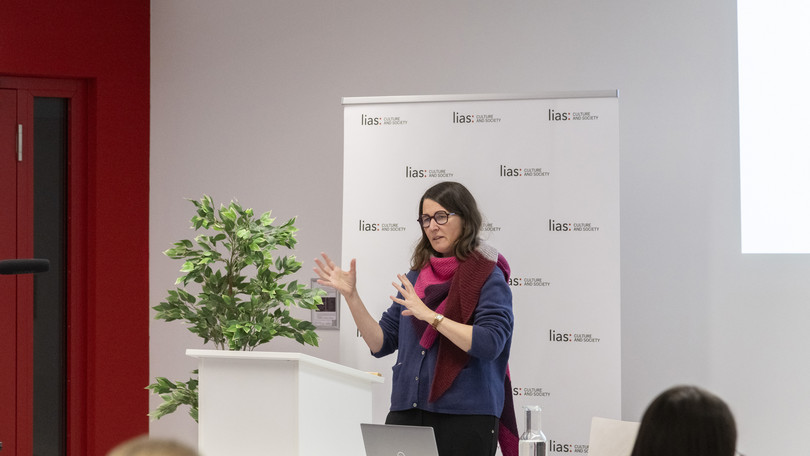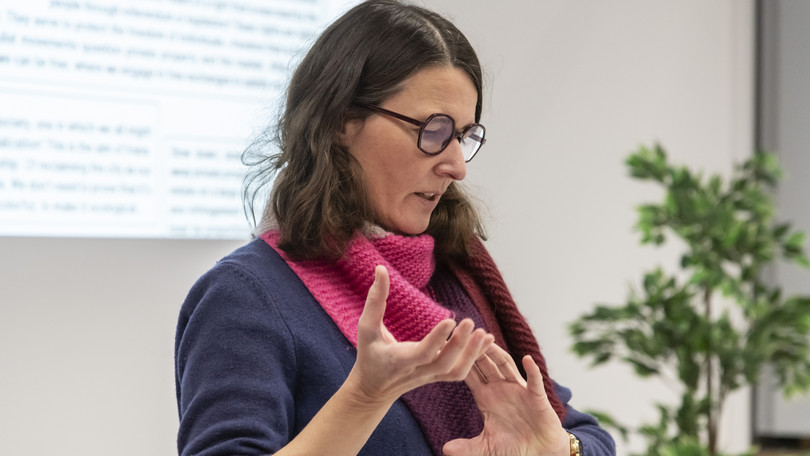What can commoning do? Laws as the shaping of community
Legal scholar Isabel Feichtner, Fellow at the New Institute, gives this autumn's LIAS Lecture
2023-12-11 Prof. Dr Isabel Feichtner, Professor of Public Law and International Business Law at the University of Würzburg and Programme Chair for “Reclaiming Common Wealth” at THE NEW INSTITUTE in Hamburg, gave the Leuphana Institute for Advanced Studies (LIAS) Lecture in Culture and Society this autumn, titled "From Critique to Commoning – The Role of Law in Social Ecological Transformation".
After a brief introduction by LIAS Co-Director Prof. Dr. Erich Hörl, in which he singled out contemporary challenges that both institutes are trying to tackle with a mix of ideals and new academic tools of analysis, Feichtner talked about her own research into the praxis of commons and which role the law plays in it both generally and specifically.. Commoning, as she described it, aims at transforming private property towards a model of shared resources; re-thinking the relationship between humans and the non-human world and re-evaluating the role of the state in both matters.
The law, Isabel Feichtner’s point of perspective, has multiple parts to play in this research. It forms at the same time the scope of critique applied and is subject to critique itself. In one of her examples, Feichtner talked about deep sea mining in the pacific ocean regions, how local communities try to fight for the conservation of their environment and how the International Seabed Authority (ISA), the UN-related organization through which States Parties organize and control mineral-resources-related activities in the Sea for the benefit of humankind, tries to control corporations’ drive to extract profit. The law becomes both a “superstructure” of the political landscape and a player in economy, when private entities apply for seabed exploration licenses and nations become their sponsor, hoping for more income coming their way as it would through the UN-instigated “sharing doctrine” around this “common heritage of humankind”.
In her other example, Prof. Feichtner used the Berlin movement “Deutsche Wohnen & Co enteignen” (translation: expropriate Deutsche Wohnen & Co) to show how the law can be used to create loopholes to dodge proper taxation and get around property laws that would otherwise regulate ownership of real estate. Tracking this, i.e. through the Trade Register, is difficult, says Feichtner, because Data Protection clauses originally created to protect individuals now veil companies involved in many such deals. She also echoed the call from many activists to not simply bring the buildings into state hands, but to truly create a way in which society would take ownership.
Feichtner closed her LIAS Lecture with a renewed call to use the tools available within the law to study cases such as those presented and to build frameworks to constitute the possibilities of commoning. Afterwards, a lively discussion was held concerning how the categorisation of value forms, also those that aren’t strictly monetary, might have colonizing effects and how different questions of responsibility arise from that.



